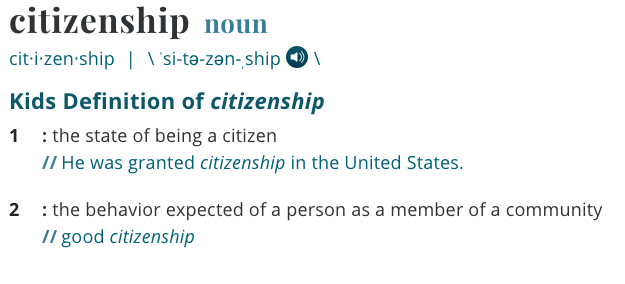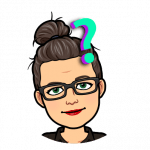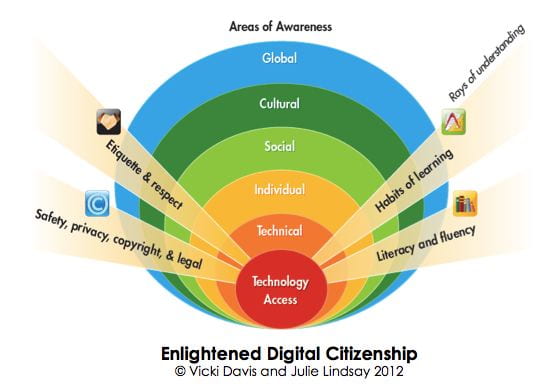
Before I fully delve into the ETL523 Digital Citizenship content, I need to briefly determine what I think digital citizenship is, in terms of being an educator of (young) children.

Digital citizenship is primarily an add on to citizenship. We must behave in a civilised manner in life, both face to face (citizenship) and online/electronically (digital citizenship). If at first students have no concept of citizenship
– that is, a communal bond and respect for living and working harmoniously together for the greater good –
then they will similarly have no concept of digital citizenship (living and working harmoniously together for the greater good electronically).
Positive Behaviour for Learning (PB4L), Social Emotional Learning (SEL), citizenship/ethics should be integral to every aspect of our 2020 teaching day. We must help students regulate through consistent SEL, relate to them via whole school programs like PB4L, so that we may reason / rationalise with them with lessons on citizenship and ethics (these being Dr Bruce Perry’s 3 R’s as provided by Beacon House, 2020).
Furthermore, I would add that as teachers our rationalisations / lessons must all be able to be reflected upon and evaluated and revised continually using some form of collegial quality teaching standards, such as the Quality Teaching Framework (QTF)…perhaps this could be my contribution to ETL523, to link Digital Learning Environments to the QTF…
The below notes are from reading ETL523 Module 1 ‘What is digital citizenship’:
Digital citizenship therefore, is not just about keeping students safe online, or giving students the skills or devices to access technology. It is helping students become productive members of an digital (learning) environment…digital citizens of a globally digital social society. This is supported by the video by ISTE, (2018) Rethinking digital citizenship.
Furthermore, as detailed by Greenhow (2010), Ribble, Bailey, and Ross (in their book, Digital Citizenship in Schools, ISTE, 2007), consider the 9 elements of digital citizenship to be: digital etiquette, digital communication, digital access, digital literacy, digital commerce, digital law, digital rights and responsibilities, digital health and wellness, and digital security.
Digital citizenship requires technical, individual, social, cultural and global awareness, which must be considered by teachers in the practical terms of students’ understanding the concepts of: safety, privacy, copyright, fair use and legal compliance, etiquette and respect, habits of learning (responsible, reliable management of online activity), literacy and fluency. This is best demonstrated by the Enlightened digital citizenship model of Davis & Lindsay (2012):

References
Beacon House, (2020). Dr Bruce Perry’s 3 R’s. Retrieved from https://beaconhouse.org.uk/resources/
Greenhow, C. (2010). New concept of citizenship for the digital age. Learning & Leading with Technology, 37(6), 24-25.
ISTE. (2018, October 11). Rethinking digital citizenship. Retrieved from https://youtu.be/iwKTYHBG5kk.
Lindsay, J., & Davis, V. (2012). Flattening classrooms, engaging minds: Move to global collaboration one step at a time. Allyn and Bacon. Chapter 5: Citizenship. (available on CSU DOMS as a downloadable PDF)
Merriam-Webster, (2020). Definition of Citizenship. [Image]. Retrieved from https://www.merriam-webster.com/dictionary/citizenship
